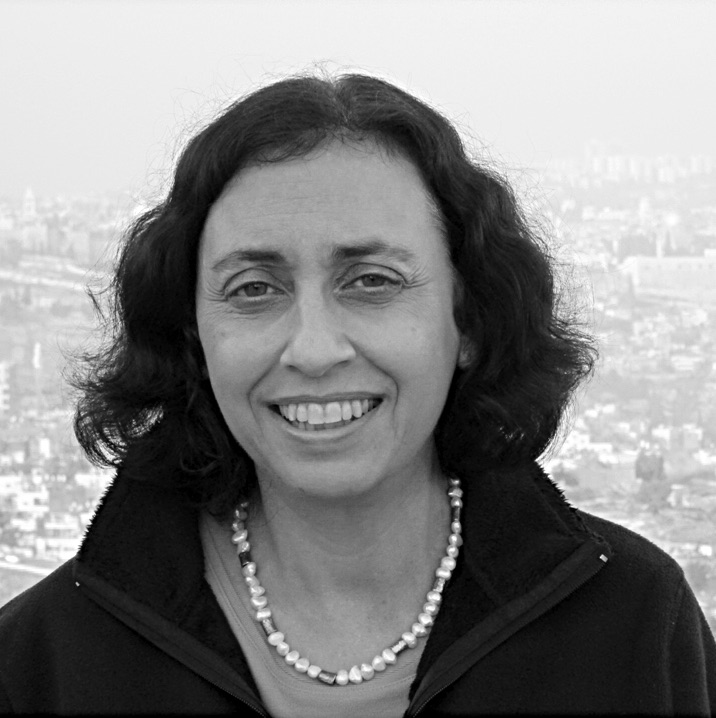Soon after their engagement, Rosie and Abe Finkelstein, residents of the Tel Aviv suburb of Givatayim, checked out some hotels and traditional event halls but ultimately chose a kibbutz as the venue for their wedding.
The minute Rosie Finkelstein, a holistic healer, viewed the catering facilities at Kibbutz Havat Ronit, located next to the better-known Kibbutz Ga’ash in the center of the country, she knew it was the right place for her nuptials.
“I saw green, green and water,” Finkelstein said of the kibbutz’s expansive lawns and tasteful manmade lake, where waterfowl glide gracefully under an arched bridge.
“We knew we wanted the chuppah outside but to eat indoors, and there was this beautiful glass dining hall that brought the feel of nature inside,” she adds. “To be able to combine all this beauty with the most beautiful day of my life felt like heaven.”
While they might have had an equally elegant (and priced) wedding in a five-star hotel, Finkelstein said, “I wanted Abe’s family, who live in the U.S., to feel like they were in Israel, not New York or Baltimore. I wanted something uniquely Israeli.”
The desire to make their wedding day a truly Israeli experience is leading increasing numbers of couples to nix bland simcha halls in favor of locales where they can wed — and sometimes dine — under the stars.
These off-the-beaten track weddings may take place at the beach, in a nature reserve or in the middle of the desert, according to Judy Krasna, an event planner and co-founder of CelebrateIsrael.com , a comprehensive Web site that offers information to anyone wishing to host a wedding or other event in Israel.
“Israelis are less concerned with the menu, the technicalities of the wedding. The place means everything,” Krasna maintains.
Due in no small measure to the fact that Israel has virtually no precipitation from midspring to midautumn, and many warm, sunny days even in winter, “most Israelis do the chuppah outside unless it’s pouring rain,” Krasna noted. “They want scenery, to be in the middle of a garden or somewhere with a view. In Jerusalem, people try to have a view of the Old City. Fortunately, there are a lot of places to choose from.”
Wedding planner Shoshana Tenowitz said weddings in the Old City, preferably with a view of the Western Wall, are particularly popular with religious couples, especially if they’re from out of town.
“Americans and South Africans are looking for an Israeli ambience, and you can’t get much more Israeli than the Old City,” Tenowitz said. “They like being right next to the Kotel and having thousands of people around them. They like the fact that people are davening [praying]. It’s a very spiritual, very romantic place, like no where else in the world.”
Krasna offers catered affairs in some seemingly unlikely places. One such place is the huge Bell Cave at Beit Gurvrin, not far from Beit Shemesh.
“It’s the most gorgeous, romantic place,” she said of the popular hiking destination. “They light it with candles. The temperature is 65 degrees Fahrenheit all year round, so it’s always pleasant, and you can have dinner inside or outside the cave. There’s also an ancient amphitheater and beautiful gardens.”
Couples can also have a wedding on the shores of the Dead Sea, where the weather is impossibly hot in the summer but blissfully balmy in the winter.
“There’s a Moroccan restaurant called, Biankini, and it’s authentic beyond authentic,” Krasna said. “They can put the chuppah outside, right on the beach in all its tranquility. The meal can be served either indoors or outside under a tent furnished with couches and pillows on the floor. My partner was driving by and found it by accident.”
Another out-of-the way spot is the Beit She’arim National Park near Haifa, which is full of ancient stone structures.
“The couple can be married in an ancient courtyard, surrounded by backlit arched walls. You feel like everything around you is in nature and as if you’ve been transported back in time,” Krasna said.
One remote site not yet on Krasna’s list is the Beerotayim Ecotourism center in the Negev, which offers camel and donkey rides deep into the desert, as well as Bedouin-style catering. The place has no electricity, so everything is done by candlelight. During the spring Beerotayim is surrounded by a thick carpet of magnificent wildflowers, making it seem more like Switzerland than the Negev. Overnight guests can stay in simple huts or a nearby hostel.
Though they are nature lovers, Adi and Reuven Rivelis didn’t want to rough it. Their goal was simple but tasteful.
“Simple is nice. We didn’t want to have anything too formal,” said Adi Rivelis, whose late-September chuppah took place at Kibbutz Gezer outside Jerusalem, as the season’s first few drops of rain began to fall.
From the start, the young couple, both university students in Jerusalem, searched for a venue that was “pretty outside, not stuffy. We wanted indoors and outdoors, flowers outside, fresh air,” Rivelis said.
Choosing to marry at Gezer, which is a working kibbutz, was not coincidental, the bride said.
“We wanted our wedding to reflect who we are. Israel is important to both of us. We both love this place, and we’re extremely Zionistic and Israeli,” Rivelis explained. “We broke the cup” — which recalls the destruction of the temples — “in the middle of the wedding, rather than at the end, to recall this moment of sadness during the heart of the ceremony.
“We wanted Jerusalem and the Temple to be an integral part of this,” she said. “We intend to spend the rest of our lives in Israel.”























 More news and opinions than at a Shabbat dinner, right in your inbox.
More news and opinions than at a Shabbat dinner, right in your inbox.